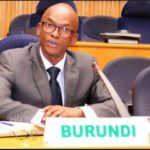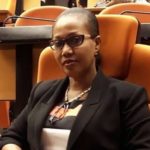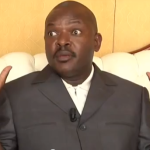It is the new pattern in Africa, pioneered by Uganda. Since 2005 when Uganda scrapped presidential term limits, over 10 other countries on the continent have followed suit, something that could lead to ‘presidential monarchies’ on the continent.
And yesterday Burundi’s parliament began reviewing a report from a national commission, convened by the President that says the people are in favor of scrapping term limits.
In October 2015, the government of Burundi formed a commission to find a solution to the country’s political crisis, which began in April 2015, when President Pierre Nkurunziza announced a plan to run for a third term, a move that critics said violated the Constitution and the Arusha peace agreement that ended the country’s civil war.
The 15-member committee was tasked with collecting the views of Burundians on the best way to put a stop to the crisis.
And almost a year later, parliament is set to debate the committee’s provisional report, which says the majority of Burundians favor abolishing the two-term limit from the constitution, and the government has said it is reluctant to speak to those who were involved in armed conflict in the country.
Also, the commission’s president, Bishop Justin Nzoyisaba, acknowledges the commission has consulted only a quarter of the organizations with whom they planned to speak.
“In Bujumbura, we had some groups like journalists and businessmen who we did not speak to… We had 20 groups. We already spoke to six groups, but we will speak to them before the final report,” he said.
Vital Nshirimana, the head of Burundi’s Forum for Strengthening Civil Society (FORSC), says the views presented to the parliament do not represent those of all Burundians.
“From the start, we noticed that the commission was exclusive, because they only listened to people that are members of the CNDD-FDD [the ruling party] and its allies, who from the beginning talked about amendment of the constitution and the cancellation of the term limits because they believed this was an obstacle for Nkurunziza to run the country forever,” he said.
The opposition group CNARED, whose members are mostly in exile, has accused the government of blocking it from taking part in the political dialogue.
Some opposition members say that if term limits are eliminated, it will be a setback for democracy, with Nshirimana saying the move to change the constitution will create more problems.
“This is extremely dangerous because this will lead to the same causes that led to the crisis that led to the civil war,” he said.
More than 300,000 Burundians were killed in the 13-year war, which ended in 2006.








